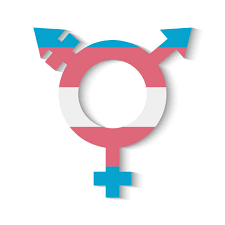High estrogen levels in males are not just a concern for women; they can significantly affect men’s health too. While estrogen is often thought of as a female hormone, it plays a crucial role in male physiology, too. When men have elevated estrogen levels, it can lead to a range of uncomfortable symptoms and health concerns that might be overlooked or misdiagnosed. Understanding what high estrogen means for men and recognizing the symptoms can help in addressing these issues effectively.
In this article, we’ll delve into high estrogen symptoms in males, exploring how they manifest, why they matter, and what steps can be taken to manage them. With a little awareness and insight, men can take charge of their health, ensuring that their hormone levels are balanced and their bodies are functioning optimally.Breast Augmentation For Men
What is High Estrogen in Males and Why It Matters
High estrogen levels in males, also known as hyperestrogenism, occur when the balance between testosterone and estrogen is disturbed, leading to an excess of estrogen in the body. This hormonal imbalance can be caused by various factors, including lifestyle choices, aging, and certain medical conditions. It’s crucial to understand that while estrogen is essential for male health, too much of it can lead to numerous health complications.
Recognizing the significance of high estrogen is vital because it can impact everything from physical health to emotional well-being. Elevated estrogen levels can result in metabolic issues, decreased libido, and even increase the risk of certain diseases. Therefore, being aware of this condition can empower men to seek help and make informed decisions regarding their health.
Common Symptoms of Elevated Estrogen Levels in Men
Men experiencing high estrogen levels may notice a variety of symptoms that can be both physical and emotional. Common symptoms include gynecomastia, which is the enlargement of breast tissue, and changes in body fat distribution. Many men may find that they are accumulating fat around their midsection or developing breast tissue, which can be distressing and affect self-esteem.
Additionally, elevated estrogen levels can lead to a decrease in libido and erectile dysfunction. These symptoms not only impact physical relationships but can also contribute to feelings of inadequacy and frustration in men, further complicating their overall well-being. Recognizing these signs early on can help in addressing the underlying hormonal imbalance effectively.
The Role of Estrogen in Male Health: A Brief Overview
Although estrogen is often labeled as a "female hormone," it plays a crucial role in male health as well. Estrogen helps regulate several essential functions, including bone density, libido, and even cognitive functions. It works alongside testosterone to support a man’s overall health, and a balance between these hormones is necessary for optimal functioning.
When estrogen levels become too high, the delicate balance is disrupted, leading to various health issues. Understanding the role of estrogen in male health is essential for men who may be experiencing related symptoms. It highlights that estrogen, while important, needs to be maintained in a healthy range to promote overall well-being.
How High Estrogen Affects Mood and Mental Clarity
The impact of high estrogen levels isn’t limited to physical symptoms; it can also influence mood and mental clarity. Elevated estrogen can lead to mood swings, anxiety, and irritability, which can be frustrating for those experiencing these emotional fluctuations. Men may find themselves feeling more sensitive or emotionally drained than usual, which can affect their daily lives and relationships.
Mental clarity may also suffer when estrogen levels are high. Many men report difficulty concentrating, forgetfulness, or a general feeling of mental fog. These cognitive changes can be particularly concerning, especially for those who need to maintain focus at work or in their daily tasks. Addressing high estrogen levels can help restore mental sharpness and emotional balance.
Physical Changes: What to Look Out For in Men
Recognizing physical changes is crucial in identifying elevated estrogen levels. Aside from gynecomastia, men might notice a shift in their body composition. Increased fat deposits around the hips and abdomen are common signs, and some may even experience a decrease in muscle mass and strength, which can be disheartening for anyone who values fitness.
Another physical change to watch for is skin alterations. Men with high estrogen levels may develop skin conditions, such as acne or dryness, which can be frustrating. Recognizing these symptoms as potential indicators of hormonal imbalance can motivate men to seek help and improve their overall health.
Causes of High Estrogen Levels: Lifestyle and Genetics
The causes of elevated estrogen levels in men can be multifaceted, often stemming from both lifestyle choices and genetic predispositions. For instance, obesity is a significant contributor, as fat tissue can convert androgens into estrogens, leading to higher overall levels. Additionally, a sedentary lifestyle, poor diet, and excessive alcohol consumption can exacerbate hormonal imbalances.
Genetics also play a role in how a man’s body regulates hormones. Some individuals may have genetic traits that predispose them to higher estrogen levels, making it essential to consider family history when evaluating hormone-related health issues. Understanding these causes can empower men to make lifestyle changes that promote hormonal balance.
Dealing with High Estrogen: Tips and Solutions for Men
Addressing high estrogen levels often involves a multi-faceted approach. First and foremost, lifestyle changes can have a significant impact. Incorporating regular exercise, maintaining a healthy weight, and adopting a balanced diet rich in whole foods can support hormonal balance. Men should also consider reducing alcohol intake and avoiding exposure to environmental estrogens found in certain plastics and chemicals.
In some cases, supplements may be beneficial in managing estrogen levels. Natural supplements like DIM (Diindolylmethane) or zinc can help promote a healthier hormonal balance. However, it’s essential to consult a healthcare provider before starting any new regimen to ensure it’s appropriate for individual health needs.
When to Seek Help: Consulting Your Healthcare Provider
If you suspect that you may have elevated estrogen levels, it’s important to consult a healthcare provider. They can conduct tests to evaluate hormone levels and discuss any symptoms you may be experiencing. A thorough evaluation can help pinpoint the underlying cause and guide you toward appropriate treatments or lifestyle changes.
Don’t hesitate to seek help, especially if you’re experiencing significant changes in mood, physical health, or sexual function. Early intervention can be crucial in managing high estrogen and preventing further complications, empowering you to regain control over your health and well-being.
Recognizing the symptoms of high estrogen in males is the first step toward achieving balance and better health. With a clear understanding of what high estrogen entails and how it impacts overall well-being, men can take proactive measures to manage their hormone levels effectively. Whether through lifestyle changes, dietary adjustments, or professional guidance, addressing this issue promotes a healthier, happier life. Always remember, it’s okay to seek help and take charge of your hormonal health!


